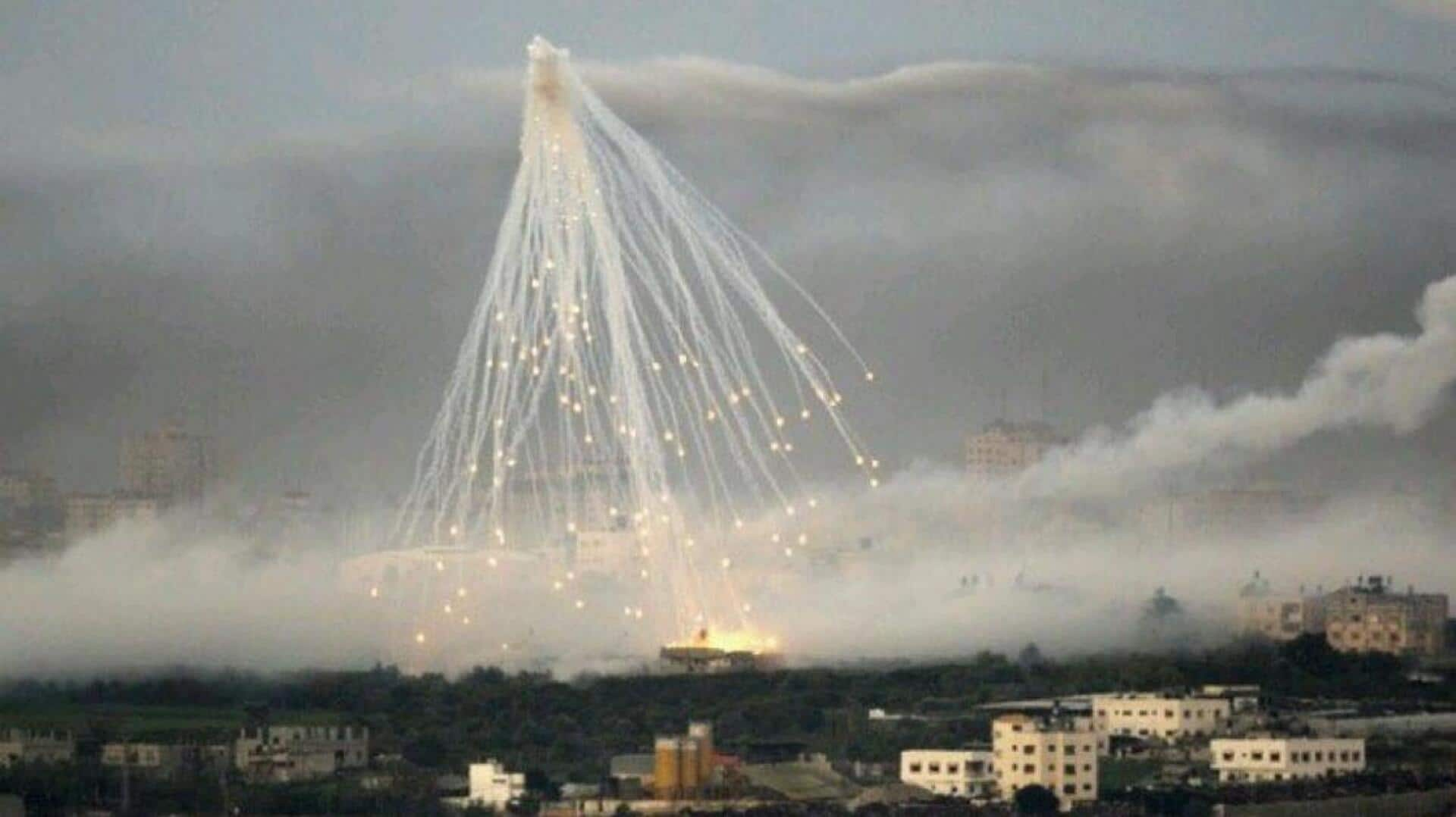
What are cluster munitions; why are they so dangerous?
What's the story
Iran on Friday launched a ballistic missile at Israel, which was armed with a warhead containing cluster submunitions. The warhead detonated mid-air at an altitude of seven kilometers, scattering around 20 bomblets over an eight-kilometer radius in central Israel. One of the bomblets hit a house in Azor while several others failed to detonate. "Iran unlawfully fired...at civilian population centers, and seeks to maximize the damage...by using wide-dispersal munitions," the Israeli embassy said in an email to Reuters.
Cluster munitions
What are cluster munitions?
Cluster munitions are weapons designed to release smaller submunitions or "bomblets" over a wide area. Each bomblet weighs less than 20kg and is released mid-air from a central container, falling unguided toward the ground. They are intended to explode on impact, causing widespread damage. These weapons can be delivered through artillery shells, missiles, rockets, and air-dropped bombs.
First strike
First known use of cluster munitions in ongoing conflict
The Iranian missile strike on Israel is the first known use of cluster munitions in the ongoing week-long conflict. The Israeli military and its embassy in Washington confirmed the attack, calling it an intentional targeting of civilian population centers. "Cluster weapons are designed to disperse over a large area and maximize the chances of a harmful strike," said the Israeli embassy.
Humanitarian concerns
Why are these weapons considered problematic?
Cluster bombs are controversial because they randomly disperse submunitions, some of which can fail to explode and kill or injure long after a conflict has ended. Estimates of dud rates vary widely, from as low as 2% to as high as 40%, with US-made munitions generally performing better than Russian versions. Daryl Kimball of the Arms Control Association called them "egregious weapons with their wide-area destruction."
International treaty
Global ban on cluster munitions
The 2008 Convention on Cluster Munitions prohibits the use, development, production, acquisition, stockpiling or transfer of such weapons. However, Iran, Israel, Russia, Ukraine and the United States are not signatories to this treaty. While the US stopped producing them in 2008 and converted many stockpiles for compliance with international conventions, it retains the option to deploy them under certain conditions.